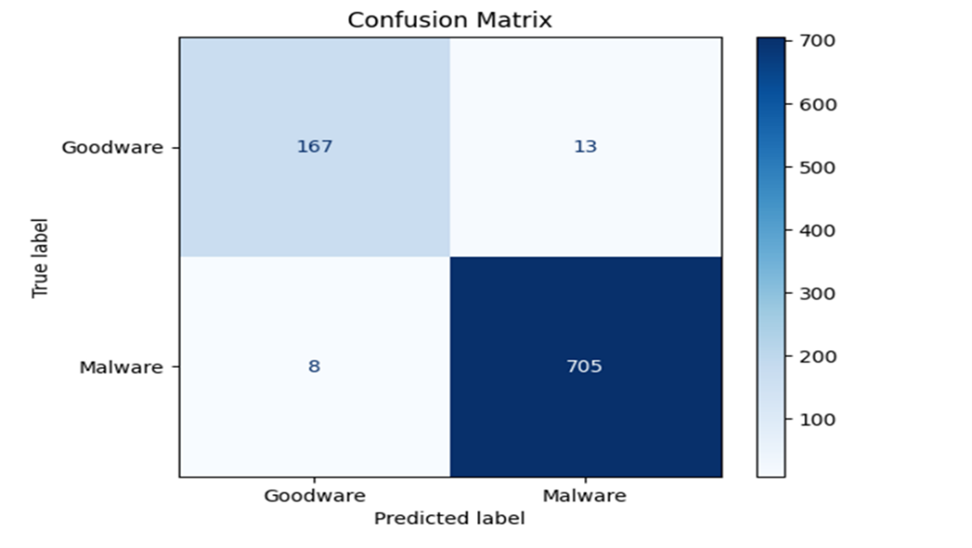Enhancing Real-time Android Malware Detection using Deep Learning and Fuzzy Logic-based Hybrid Models
DOI:
https://doi.org/10.71146/kjmr494Keywords:
Malware Detection, Android Security, Deep Learning, Fuzzy Logic, Hybrid ModelAbstract
This research proposes improving in-the-moment malware detection for Android-powered gadgets with a mixed model that combines fuzzy logic and deep learning. With the increasing amount of malware targeting Android, classic detection methods like heuristic or signature-based methods don’t work anymore. The integration of the proposed model encompasses the monitoring of application behaviors involving Long Short-Term Memory (LSTM) networks and fuzzy logic in addressing uncertainty involved in decision-making, while imitating human judgment. The major goal is to optimize extracted features and fuzzy logic rules with a greater accuracy and efficiency. The model is built based on a Kaggle dataset of 19,889 rows and 77 features (application permissions, activities and services) to classify applications as malicious or benign. The methodology includes data preprocessing (normalization and missing values), Recursive Feature Elimination (RFE) with Random Forest for feature selection and modeling with LSTM while combining fuzzy logic. The results are presented which demonstrate the high performance of the proposed hybrid model and report 97.6% accuracy, 98.18% precision, 98.88% recall, and 0.96 ROC AUC. More so, the model is environmental for low resource settings via pruning, quantization, and cloud-based inference hence efficient for real time detection even in the commonest of devices. Further research may include reinforcement learning or modify the model for iOS/Windows systems.
Downloads

Downloads
Published
Issue
Section
License
Copyright (c) 2025 Haris Mehmood, Muhammad Kamran Abid, Muhammad Fuzail, Ahmad Naeem, Naeem Aslam (Author)

This work is licensed under a Creative Commons Attribution 4.0 International License.






